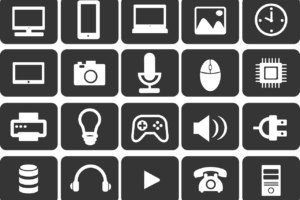Coaching: A Versatile Tool with Contextual Considerations
- Posted by JD Kropman, PhD
- Categories Articles
- Date August 16, 2023
- Comments 0 comment

Coaching is celebrated as a powerful tool for personal and professional transformation, providing extensive benefits to those looking to elevate various facets of their lives. Yet, it raises a crucial inquiry: Is coaching a one-size-fits-all solution, or are there circumstances where its application requires careful consideration? The answer is complex and hinges on numerous factors. In this article, we will delve into the subtleties of coaching’s relevance, its structured approach, and the paramount importance of ensuring that coaching initiatives align with the overall wellbeing of clients.
The advantages of coaching span a wide spectrum, touching many areas of an individual’s life. Whether it’s finding clarity in life’s direction, reorganizing scattered priorities, enhancing resilience against change, or fostering comprehensive personal growth, coaching is a robust vehicle for change. It leverages the power of introspection and heightened self-awareness, steering individuals toward a more meaningful and satisfying life.
Integral to the coaching process is its dual nature, consisting of two key components. The first is the “aha” moment, typically a revelation during weekly sessions, where significant insights surface. The second is the translation of these insights into concrete actions in the days between sessions. This dynamic process ensures that coaching transcends theoretical advice, promoting active engagement with fresh perspectives.
Despite its numerous benefits, the question of coaching’s universal applicability is critical. As a coach, I am deeply committed to the overall wellbeing of my clients, a commitment that guides decisions about starting a coaching journey—a journey that demands not just financial investment but also emotional and intellectual commitment.
Recognizing that life’s demands and constraints can limit one’s capacity to engage fully with coaching, it becomes essential to consider whether coaching should proceed under less-than-ideal circumstances. This consideration stems from an ethical responsibility and empathy towards the client’s situation.
Adhering to a strict code of ethics, I aim to balance recommending coaching with acknowledging an individual’s broader life commitments. If these commitments impede full participation in the coaching process, it may be wise to delay the journey until a more fitting moment. This approach is rooted in the belief that ethical coaching must align with a client’s current circumstances and readiness.
When faced with potential time constraints, individuals often ask, “Why can’t I find the time?” This question deserves a thorough exploration, ideally in an open, empathetic coaching session dedicated to discussing these constraints. Such discussions can lead to a deeper understanding of an individual’s priorities and responsibilities.
However, it is important to note that I do not typically recommend an extensive series of coaching sessions. Rather, I propose a single, focused session to decide on the best course of action. This respects the intricate balance of an individual’s responsibilities and aspirations, providing a clear perspective on the feasibility of committing to coaching.
In conclusion, while coaching is a formidable tool for growth, it is not suitable for everyone at every stage of life. Its effectiveness depends on factors like an individual’s readiness and the alignment of coaching objectives with their overall wellbeing. Coaching promises significant insights and transformations, but it requires engagement that is both authentic and responsible. My philosophy emphasizes ethical coaching and its synchronization with an individual’s real-time circumstances. By advocating for a thoughtful, decision-making session, we respect the essence of coaching: a partnership grounded in trust, empathy, and ethical integrity, all aimed at empowering individuals on their unique journeys of growth and development.
You may also like

¿Y si no soy suficiente para emprender?

